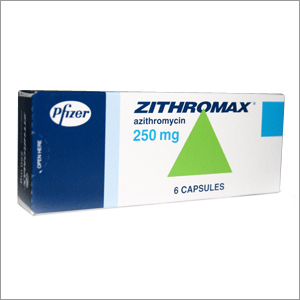An ongoing dialogue on HIV/AIDS, infectious diseases,
October 27th, 2008
Antibiotics as Placebos?
This article in the BMJ is geting lots of news: Out of 679 practicing physicians in the United States, about half admitted to prescribing placebos on a regular basis. A “small but notable proportion (13%) of physicians reported using antibiotics.”
My first instinct was surprise that the rate was this low, but then I remembered that public perception of this practice might not be so favorable. As a result, the appropriate MD response to this news is to be “shocked, schocked …” that placebos are being prescribed, and to express grave concern at the ethics of the practice. So undoubtedly some of the doctors surveyed in that study probably didn’t tell the truth.
From an ID perspective, reading that antibiotics are sometimes used as a placebo is hardly news at all. Since about half of the US population believes that antibiotics are helpful for the common cold, all a clinician has to do is prescribe a Z-pack for a runny nose to a patient expecting antibiotics, have that patient get better (colds do, after all get better eventually), and the practice is reinforced. This exact exchange must transpire hundreds of thousands of times a day in doctors’ offices and emergency rooms.
I’ve written here about one potential cure for this problem (C. diff), but it’s not exactly something you’d want instituted as a preventive measure.
Is there a way to exploit the placebo’s powerful effect in clinical practice that doesn’t seem so sneaky? And doesn’t expose patients to medication side effects? Here’s one: Our office has a terrific coffee/tea maker, and I’ve found that handing a patient with a bad cold a cup of freshly made green tea in a nice mug works wonders. I don’t believe we ever covered that in medical school.



We’ve tried this is the past in a large medical group practice: the CDC has some nice tear off sheets that serve as a “prescription” for symptomatic relief of the common cold: i.e. bed rest, fluids, acetaminophen, etc. The provider checks off the box in front of each prescribed treatment, and at least the patient or PARENT leaves the office with something in hand other than a prescription for an antibiotic! There is also clear language that states that the common cold is caused by a VIRUS and not BACTERIA, so antibiotics will not work. AAAAh a moment of education, although it often falls on deaf ears of patients who feel sick and just want Z-pak!
There was a randomized trial of resp tract management, which consisted of two randomizations:
1) three-arms: immediate abx, “deferred” abx (fill only if no better in 48 hours), or no abx
2) two arms: educational pamphlet or none
Results: Clinical outcomes the same (of course); deferred abx group took less abx than the immediate group (good); more pts in the immediate group felt “very satisfied” with their care.
And the sad part? Alas, the educational pamphlet had no effect.
It’s a study for the nihilists out there!
Little P, et al. JAMA 2005;293:3029-3035.
Dr Sax,
Perhaps this is only tangentially related to the topic, but I encountered something yesterday that I found pretty disturbing. One of my colleagues treated a 7 year old girl for strep. She was documented Penicillin allergic, so he wrote her for erythromycin suspension. Our nurse had to actually call 7 different pharmacies to find one who carried it in any strength(!?!). Most of the pharmacists simply said “Just give them zithromax, that’s all we see any more”. Now I can’t site the exact studies, but isn’t zithromax only about 80% effective against Group A Beta-Hemolytic Strep? How is it in a city of 750,000 or so (Virginia Beach/Norfolk area), that so many pharmacies have stopped even carrying erythromycin suspension? Is no one writing for it any more?
My colleague and I then had a lively discussion about this. I suggested that if the patient did not have anaphylaxis with Penicillin, why not try Ceftin if erythromycin is not available, as a better option than zithromax. He doubted that cephalosporins “covered” strep, but I recall some studies showing adequate coverage of GAS with ceftin and some other cephalosporins. I do agree with his contention that Pen VK is always first line, then erythromycin. But what sholud be next?
What are your thoughts on this? By the way, I work at a very busy Urgent Care, and we see literally dozens of cases of strep each week. Our own clinic has stopped carrying the ery suspension, as it seemed to gather dust on the shelf…
For strep throat, cephalosporins have a long and distinguished track record — some analyses actually suggest they are better than PCN! This might be due to beta-lactamase producing oral flora that inactivate PCN but not cephs.
Dr Sax,
Thanks for your thoughts. Any specific studies you would recommend I review?
Perhaps the “over-prescribing of antibiotics” can be attacked (since nothing else seems to reduce it) by renaming it as “placebo-prescribing of antibiotics”.
Then rather than saying they are doing it out of habit, ignorance, being more concerned with attracting and keeping income-producing patients that demand them (being more interested in making money instead of making good medicine), or simple lack of personal strength to fend off these patients’ stroking of their egos, could be said to be giving them for their placebo effect. This would be done for all such doctors, etc., not just those who admitted doing it as a placebo.
Then, many patients would resent and feel insulted by any physician (or other prescriber) and refuse unneeded antibiotics, and thereby influence a decrease. AND, a few of the MD’s might be shamed into not over-prescribing.
Dr Franzi,
Here’s one of several systematic reviews in kids:
Casey JR, et al. Meta-analysis of cephalosporin versus penicillin treatment of group A streptococcal tonsillopharyngitis in children. Pediatrics 2004 Apr;113(4):866-82.
And here’s a review in adults, same authors:
http://infectious-diseases.jwatch.org/cgi/content/full/2004/628/2
Paul